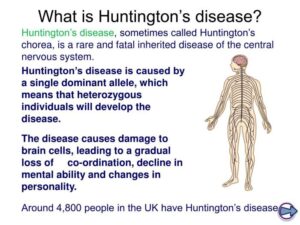
With Genetic disorders leading the charge in the biological drama of life, we dive headfirst into the quirky world of our genes—those cheeky little strands of DNA that sometimes forget the script and throw a wrench in our health plans! Think of genetic disorders as the plot twists in a soap opera, where characters (or should we say genes) occasionally take an unexpected turn, leaving us both baffled and intrigued.
Genetic disorders come in various flavors, each one unique, often caused by mutations that disrupt the normal functioning of our cells. These disorders can impact everything from our health to our family dynamics, creating a fascinating tapestry of how genetics play a pivotal role in our lives. So grab your popcorn as we explore the complexities of genetic disorders and their far-reaching effects on individuals and families alike!
Genetic Disorders Overview
Genetic disorders are like uninvited guests at a party: they crash the celebration of life, often causing unexpected havoc. These conditions originate from anomalies in our genetic makeup, which dictates everything from our eye color to our susceptibility to certain diseases. As we delve into the world of genetic disorders, let’s explore the types, implications for health, and the impact they can have on families and individuals.
Genetic disorders can be broadly categorized into three types: single-gene disorders, chromosomal disorders, and multifactorial disorders. Single-gene disorders occur due to mutations in individual genes – think of it as a typo in a book that changes the meaning of a sentence. Chromosomal disorders arise from abnormalities in chromosome number or structure, such as Down syndrome, which involves an extra copy of chromosome 21.
Multifactorial disorders are a blend of genetic and environmental factors; imagine trying to bake a cake where the recipe is influenced by both the ingredients and the chef’s mood.
Types of Genetic Disorders
Understanding the different types of genetic disorders helps us grasp their complexities and the varied ways they manifest. Each type presents unique challenges and requires tailored approaches.
- Single-Gene Disorders: These are caused by mutations in a single gene and include conditions such as cystic fibrosis, sickle cell anemia, and Huntington’s disease. The consequences can range from mild inconveniences to serious health complications, depending on the specific gene affected.
- Chromosomal Disorders: These result from changes in chromosome number or structure, with examples like Turner syndrome and Klinefelter syndrome. These conditions often affect physical development and can lead to a variety of health issues.
- Multifactorial Disorders: These disorders arise from a combination of multiple genes and environmental influences. Examples include heart disease, diabetes, and certain cancers. They highlight the intricate dance between genetics and lifestyle choices.
The role of genetics in health and disease is akin to a double-edged sword. On one side, our genetic makeup can predispose us to certain conditions, while on the other, it can also provide resilience against some ailments. The advances in genetic research are like having a backstage pass to the concert of life, allowing us to understand and predict health outcomes better.
For instance, genetic testing can alert individuals to hereditary conditions like BRCA mutations, which significantly increase breast and ovarian cancer risks.
Impact on Individuals and Families
The ripple effects of genetic disorders extend beyond the individual, often affecting families in profound ways. The emotional, psychological, and financial burdens can be substantial, creating a cascade of challenges that require a strong support system.
- Emotional Impact: Families may experience a spectrum of emotions ranging from shock to grief, as they navigate the news of a genetic disorder. The uncertainty of the future can feel like trying to read the last chapter of a book without knowing the storyline.
- Psychological Effects: The mental health of both the individual and family members can be impacted. Feelings of anxiety and depression may arise, necessitating professional support to cope with the diagnosis and its implications.
- Financial Considerations: The costs associated with treatment, therapy, and ongoing care can strain family resources. It’s like buying a ticket to an amusement park, only to find the rides are more expensive than you anticipated.
“Genetics is not destiny. It is a part of the intricate tapestry of life,” a reminder that while genes play a significant role, they do not define who we are.
Health Implications of Genetic Disorders

Genetic disorders can often feel like unwelcome guests at a party—showing up uninvited and making things a bit chaotic. They can influence various health conditions, from asthma to autism, and even lead to challenges like childhood obesity. Let’s dive into this tangled web of genetics and how it affects our health, with a sprinkle of humor to keep it light.
Relationship Between Genetic Disorders and Conditions like Asthma and Autism
Genetic disorders can hold the keys to a wide array of health challenges. For instance, both asthma and autism spectrum disorders (ASD) can be influenced by genetic factors. Research has shown that certain genes may increase the risk of developing asthma, a condition where one’s lungs seem to act like they’re perpetually on a rollercoaster ride—full of ups and downs with wheezing and breathlessness.
Similarly, autism has a genetic component that can make individuals more prone to developmental delays and communication challenges, leading to a unique but often misunderstood way of navigating the world.To illustrate, studies suggest that individuals with certain genetic markers are more likely to experience conditions like asthma. It’s as if they were given a VIP ticket to a club of respiratory issues, where membership is determined by family history.
In the case of autism, the interplay of multiple genes can impact brain development, resulting in various behaviors and skills that contribute to the rich tapestry of human diversity.
Genetic Disorders Leading to Childhood Obesity and Its Prevention
Some genetic disorders can play a significant role in childhood obesity, which is a growing concern worldwide. These disorders can affect how the body processes food and regulates weight. For example, Prader-Willi syndrome is a genetic condition that can cause insatiable hunger and metabolic challenges, leading children down the path of obesity without any warning signs. Preventing obesity in children with genetic predispositions involves a multifaceted approach, focusing on healthy diet and lifestyle.
Here are some strategies to keep in mind:
- Nutrition Education: Teaching families about healthy eating habits to ensure kids know the difference between broccoli and a chocolate bar.
- Physical Activity: Encouraging fun ways to get moving, like dancing, swimming, or running from the ice cream truck.
- Regular Health Monitoring: Keeping a close eye on growth patterns and weight to catch any potential issues early on.
- Support Groups: Connecting families with resources and communities that understand the complexities of genetic disorders and obesity.
The key is to create a supportive environment that fosters healthy habits while embracing the uniqueness of each child.
Comparative Impact of Genetic Disorders on Dental Care and Critical Care Needs
Different genetic disorders can lead to diverse dental care requirements and critical care needs. For instance, individuals with conditions like Down syndrome often face unique dental challenges, such as misalignment of teeth and a higher risk of periodontal disease. Meanwhile, those with cystic fibrosis may require specialized dental care due to dry mouth and increased cavities, as their bodies produce thick mucus that can affect oral health.To provide a clearer picture, here’s a comparison of how various genetic disorders can influence dental and critical care:
| Genetic Disorder | Dental Care Implications | Critical Care Considerations |
|---|---|---|
| Down Syndrome | Higher risk of gum disease and misaligned teeth. | Need for regular check-ups to monitor heart conditions. |
| Cystic Fibrosis | Increased risk of cavities and dry mouth. | Frequent respiratory therapy and nutritional support. |
| Fragile X Syndrome | Potential for dental anxiety leading to avoidance of care. | Comprehensive behavioral support for medical visits. |
Understanding these implications helps healthcare providers to tailor their approaches, ensuring comprehensive care that addresses both dental needs and critical health considerations effectively.
“Genetics may give you the starting line, but lifestyle choices can help you run the race.”
Lifestyle and Genetic Disorders
Living with a genetic disorder can feel like someone handed you a mystery novel where the plot twists keep coming. But fear not! Just because your genes decided to throw in some unexpected complications doesn’t mean you can’t lead a fabulous life. Managing health and beauty while living with a genetic disorder involves a combination of understanding your body and giving it the best possible care.
This guide provides clever insights into nutrition, fitness, and mental wellness, helping you shed light on the path to a vibrant life.
Health and Beauty Management
For individuals with genetic disorders, maintaining health and beauty can require a bit of creativity. The key is to embrace what you have, while also taking proactive steps. Here are some strategies to keep you glowing inside and out:
- Skin Care: Opt for gentle, hypoallergenic products that won’t trigger sensitivities. Daily hydration is essential; think of it as giving your skin a refreshing drink of water!
- Hair Care: Use sulfate-free shampoos and nourishing conditioners. Regular trims can prevent split ends from crashing your party!
- Sun Protection: Always wear sunscreen. Think of it as your skin’s superhero, protecting you from the fierce rays of the sun.
- Self-Care Rituals: Engage in relaxing activities like aromatherapy or yoga. It’s not just about looking good; feeling good is a major part of the package!
Nutrition and Fitness Strategies
Nutrition and fitness are like the bread and butter of a healthy lifestyle, especially for those facing genetic disorders. They offer practical ways to enhance bodily function, increase energy, and build muscle. Here’s a comprehensive guide to eating right and getting fit:When it comes to nutrition, focusing on a balanced diet can make all the difference. Here are some key pointers to keep in mind:
- Lean Proteins: Incorporate chicken, fish, beans, and legumes. They help in muscle building and recovery.
- Fruits and Vegetables: Fill your plate with a rainbow of colors. Each hue offers unique vitamins and minerals. Plus, who doesn’t want to eat like a botanical masterpiece?
- Healthy Fats: Avocados, nuts, and olive oil can support overall health. They’re like the smooth jazz of your diet, making everything feel a little more sophisticated.
- Hydration: Drink plenty of water! Think of it as the oil that keeps your engine running smoothly.
Fitness can also play a crucial role in managing health. Here are some strategies to get moving:
- Strength Training: Incorporating light weights or resistance bands can help build muscle without stressing the body.
- Cardio Workouts: Activities like walking, swimming, or cycling can improve cardiovascular health and boost mood. Plus, they’re perfect for breaking a sweat while enjoying the great outdoors!
- Flexibility Exercises: Yoga and stretching enhance mobility and reduce stress. Your body will thank you, and who wouldn’t want to feel like a pretzel?
- Consistency: Establish a routine that works for you. This isn’t a sprint; it’s a leisurely jog through a beautiful park!
Mental Health Considerations
Genetic disorders often bring with them an emotional baggage claim that’s heavier than expected. It’s essential to address the impact on mental health, particularly in relation to depression and developmental disabilities. Living with a genetic disorder can be challenging, and acknowledging the emotional toll is vital. Dealing with feelings of isolation or frustration is common. It’s important to remember:
“Addressing mental health is just as crucial as managing physical health; one complements the other.”
Engaging in mental health support strategies can help:
- Therapy and Counseling: Speaking with a professional can provide tools to manage emotions effectively. It’s like having a personal coach for your brain!
- Support Groups: Connecting with others facing similar challenges can provide understanding and camaraderie. You’re not alone in this journey!
- Mindfulness and Relaxation Techniques: Practices such as meditation can help reduce anxiety and promote a sense of peace. Imagine it like hitting the ‘pause’ button in a chaotic movie.
- Creative Outlets: Engaging in art, music, or writing can be therapeutic, allowing for self-expression and emotional release. Unleash your inner Picasso or rock star!
End of Discussion

In wrapping up our rollercoaster ride through the world of Genetic disorders, we’ve uncovered not just the what and how but also the profound implications these genetic quirks have on our daily lives. From health complications to familial ties, understanding these disorders is crucial in shaping both personal and societal approaches to health. So, as you step away from this genetic adventure, remember: knowledge is power, and a little humor can go a long way in navigating life’s unexpected twists!
Key Questions Answered
What are some common genetic disorders?
Some of the most common genetic disorders include cystic fibrosis, sickle cell anemia, and Down syndrome, each showcasing the wild world of genetics.
Can genetic disorders be prevented?
While many genetic disorders cannot be prevented, genetic counseling and early intervention can help manage their impact.
Is genetic testing worth it?
Absolutely! Genetic testing can provide valuable insights into your health risks and guide preventive measures.
How do genetic disorders affect mental health?
Genetic disorders can significantly impact mental health, often leading to higher rates of depression and anxiety among affected individuals.
Can lifestyle changes help manage genetic disorders?
Yes, adopting a healthy lifestyle can help mitigate some effects of genetic disorders and improve overall well-being!





